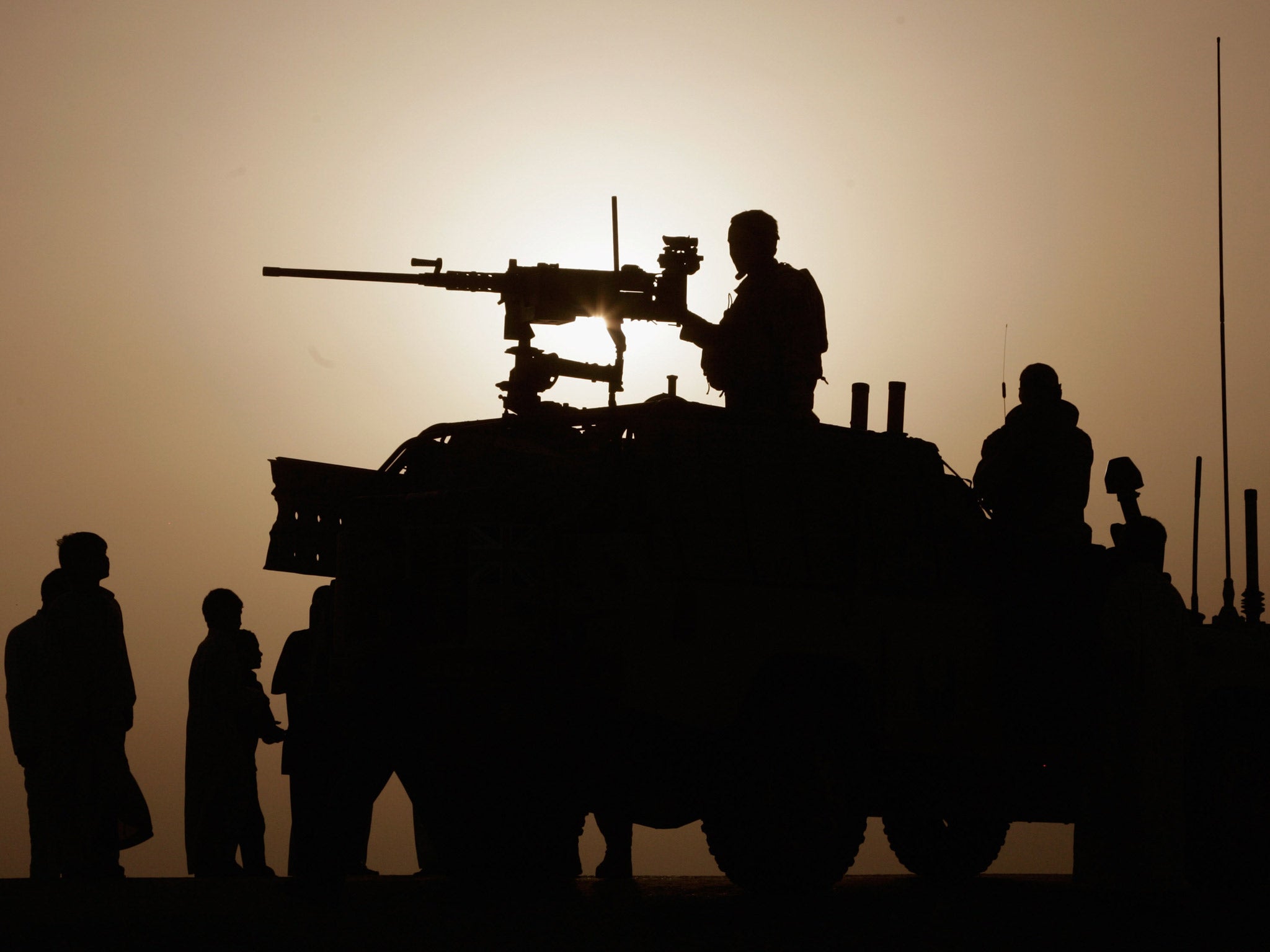Army Major cleared of drowning Iraqi teenager talks of desperation after 17 years
'It has been very exhausting, it's been pretty horrible and everywhere that I and my two soldiers turned for help we were turned away,' says Robert Campbell

Your support helps us to tell the story
From reproductive rights to climate change to Big Tech, The Independent is on the ground when the story is developing. Whether it's investigating the financials of Elon Musk's pro-Trump PAC or producing our latest documentary, 'The A Word', which shines a light on the American women fighting for reproductive rights, we know how important it is to parse out the facts from the messaging.
At such a critical moment in US history, we need reporters on the ground. Your donation allows us to keep sending journalists to speak to both sides of the story.
The Independent is trusted by Americans across the entire political spectrum. And unlike many other quality news outlets, we choose not to lock Americans out of our reporting and analysis with paywalls. We believe quality journalism should be available to everyone, paid for by those who can afford it.
Your support makes all the difference.An Army Major accused of drowning an Iraqi teenager has spoken of how he thought the investigations would never end as he was exonerated after 17 years.
Major Robert Campbell was cleared of any wrongdoing after the latest official inquiry into the death of 19-year-old Saeed Radhi Shabram Wawi Al-Bazooni in Basra in May 2003.
Eyewitnesses claimed Maj Campbell and colleagues from the 32 Royal Engineer Regiment forced the victim, known as Saeed Shabram, and friend Munem Auda into a river at gunpoint having suspected them of looting near the former marine base in Basra.
On Thursday, former appeal court judge Baroness Hallett decided there was "no reliable evidence upon which it would be proper to conclude that (Maj Campbell) or any other British soldier pushed or forced Auda and Shabram into the water".
Maj Campbell was scrutinised in eight investigations into the teenager's death, including one for possible manslaughter, before he was ultimately cleared.
He told Forces News: "It has been very exhausting, it's been pretty horrible and everywhere that I and my two soldiers turned for help we were turned away.
"No one would help us within the Army or the MoD, none of the ministers would help us, it's been pretty desperate at some stages."
Baroness Hallett's report found that a number of civilian witnesses came forward to give evidence against Maj Campbell, claiming they had seen British soldiers push Mr Shabram into the water.
But Baroness Hallett said most of the accounts by Iraqi witnesses had been deemed "inherently unreliable" in a previous judicial inquiry into the case.
The decorated Major ultimately sent his campaign medals back to the Queen "in disgust" as investigations into his conduct - including by the discredited and now defunct Iraq Historic Allegations Team (IHAT) - continued.
Maj Campbell said: "We just got to a stage where it was just so repetitive that we just thought it would never end, and even though it appears that it has now, I've still got a kind of fear in the back of my mind that in some way it could get resurrected again in the future."
He said the experience had been a "black cave of uncertainty".
Maj Campbell continued: "I didn't deal with it very well, I tried to block it out. It's no secret and I'm not remotely embarrassed by the fact that I went to a lot of mental health therapy.
"On top of everything that happened in Iraq and Afghanistan, later on in my career, I haven't lived with it, I've been dragged through it. It's my wife that kept me together."
In her report, Baroness Hallett acknowledged the weight of the investigation into the British military.
She said: "The soldiers have been investigated twice on suspicion of manslaughter and the events of May 23 2003 have now been hanging over them for 17 years."
Additional reporting by PA Media

Join our commenting forum
Join thought-provoking conversations, follow other Independent readers and see their replies
Comments